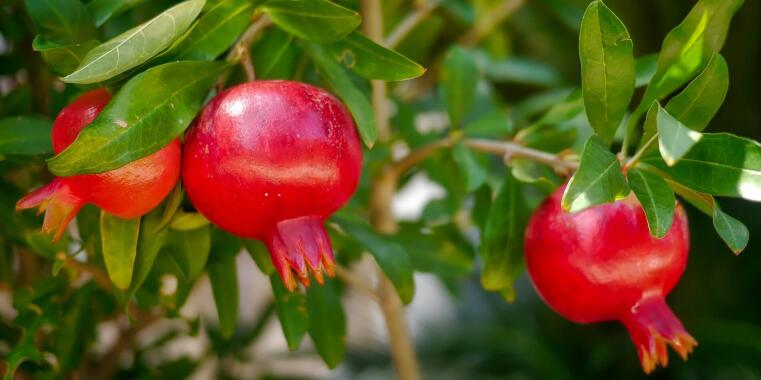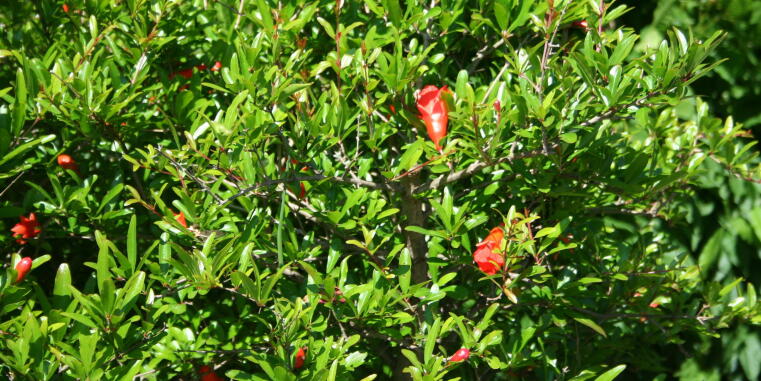



order: Myrtales
family: Lythraceae
genus: Punica
species: Punica granatum
attributes: decidous, small tree, up to five meters in height
origin: modern day Iran, northern Turkey up to Pakistan
habitat: western and central Asia, Mediterranean, planted in USA, Chile, Southafrica, Australia, Argentinia and Brasil
... a land of wheat and barley and vines and fig trees and pomegranates, a land of olive oil and honey ...
Deuteronomy 8,8
The fourth book of Moses reports that Moses sends out scouts to explore Canaan (Num 13,1-14,45). Upon their return to the people in the desert, they bring back grapes and pomegranates.
The pomegranate (Hebrew rimmôn) is one of the seven typical crops of Palestine, the others being weed (Nr. 33), barley, wine (Nr. 6), olive tree (Nr. 9), fig tree (Nr. 1) and date palm (Nr. 2). The Hebrew word Rimmon can also be used as toponym (Jos 15,32; 1Chr 4,32) and personal name (2Sam 4,2).
The pomegranate was cultivated as early as 1450 BC in the gardens of Thutmosis II in Egypt, who imported them after a military campaign. It can be interpreted as a symbol for the tree of life.
It is also mentioned in the Song of Songs. It was considered a symbol of fertility and used as aphrodisiac. Owing to this it could be found in the decoration of the temple in Jerusalem. The first book of kings mentions 200 pomegranates made of bronze as capitals (1 Kings 7,17.20) and according to the second book of Moses the clothes of the highpriest were adorned with pomegranates (Ex 28,33-34).
mentions: several
other text passages (selected):
Exodus 39,24-26
Numbers 13,23f
Numbers 20,5
Numbers 33,19
Judges 20,45.47
Joel 1,12
Haggai 2,19
Riede, Peter: Granatapfel / Granatbaum, in: Das wissenschaftliche Bibellexikon im Internet (Okt. 2017), URL: https://www.bibelwissenschaft.de/wibilex/das-bibellexikon/lexikon/sachwort/anzeigen/details/granatapfel-granatbaum/ch/69573ba0351f5bba80c6ada8a24dc3b4/ (abgerufen 01.05.2023).
Modern King James Version.




